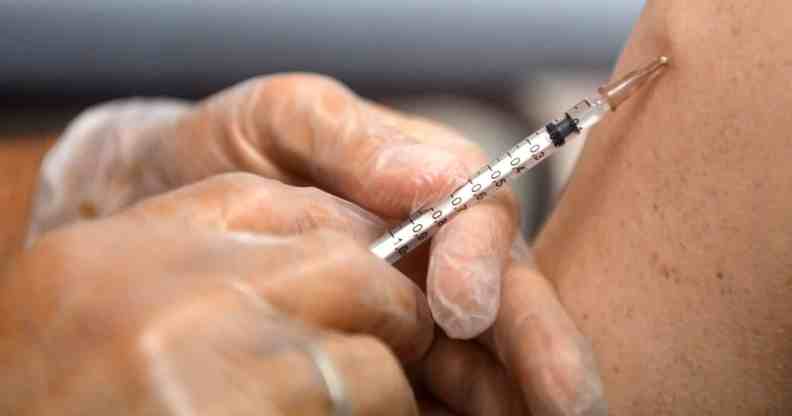Monkeypox: Vaccinated man put into quarantine after roommate tests positive loses court case

A vaccinated man put under quarantine after his roommate got monkeypox has lost his court case. (Francois Lo Presti/AFP via Getty Images)
A man in Germany has lost a court case to lift his quarantine order after his roommate caught monkeypox.
According to German newspaper Rheinische Post, the man was advised by the Düsseldorf Public Health Department to quarantine for 21 days after his roommate acquired monkeypox, despite being vaccinated.
The man filed an applicate lift the quarantine order due to his vaccinated status.
However on Wednesday (10 August), Düsseldorf Administrative Court decided the man’s vaccination was invalid as the European Union has not yet approved the JYNNEOS jab, and refused to life the order.
According to a statement released by the court, its decisions were based on findings and guidelines generated by the Robert Koch Institute in Germany, a government agency for disease control and prevention.
The institute guidelines state a “high-risk contact” is someone who has spent at least one night in the same living space as someone with a monkeypox diagnosis during the infectious period.
According to the latest data from the CDC, there have been 31,799 confirmed global cases of monkeypox in its current outbreak, as of Friday (12 August).
The World Health Organization declared monkeypox a public health emergency of international concern in July. The US federal government has since declared monkeypox a public health emergency with the Centers for Disease Control and Prevention (CDC) reporting more than 11,177 confirmed cases in the country.
In the UK, people with monkeypox are asked to isolate, though close contacts are not, provided they have no symptoms,
WHO this month announced it would be creating an open forum to rename monkeypox, as concerns build that the virus’ current name could be increasing stigma and discrimination.
It added that giving new names to monkeypox variants would “avoid causing offence to any cultural, social, national, regional, professional, or ethnic groups, and minimise any negative impact on trade, travel, tourism or animal welfare”.
A group of scientists added they believe a new name that is “neutral, non-discriminatory and non-stigmatising” will be “more appropriate” going forward.

